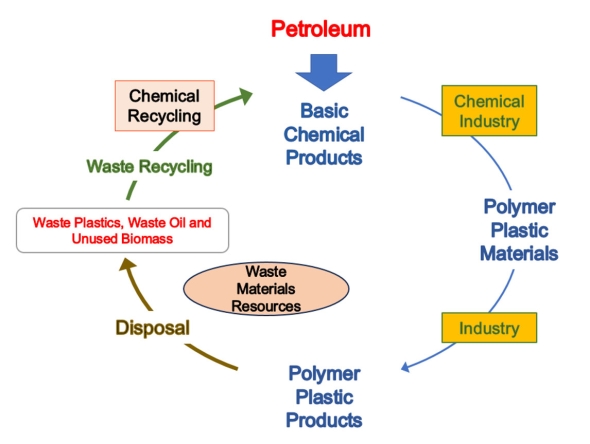2024
Formulating a Resource-Circulation Kyushu Model for a Decarbonized Society:
Aiming to Establish the First Local Production and Local Consumption Process of Waste Plastics through Chemical Recycling in the Kyushu Region
Feb. 05, 2024
Marubeni Corporation
Marubeni Corporation, along with KYUSHU UNIVERSITY Transdisciplinary Research and Education Center for Green Technologies, Resonac Corporation, and Sumitomo Mitsui Trust Bank, Limited, has agreed to form a “knowledge hub” aimed at developing a resource-recycling society model in the Kyushu region. This “knowledge hub” is set to establish the first local production process of recycled waste plastics for local consumption in the Kyushu area, utilizing waste and unused resources emitted by the industrial sector and local governments. The goal is to construct a resource-recycling society model in the region that harmonizes “zero carbon,” “environmental conservation,” and “economic circulation,” serving as a forum for discussion to achieve these objectives.
Faced with the disposal of approximately 8 million tons of plastic products every year, Japan enacted the Act on Promotion of Resource Circulation for Plastics (hereinafter, “the Act”) in April 2022 as the promotion of plastics recycling at the local level was urgently needed. Currently, about 60% of plastic waste is recovered and recycled through thermal recycling*1. However, the carbon content inside the waste that is incinerated is dispersed into the atmosphere as CO2. Therefore, to reduce CO2 emissions, plastic waste must be recycled into plastic products through chemical recycling*2, in addition to material recycling*3.
 Chemical Recycle Flow
Chemical Recycle Flow
At the “knowledge hub”, Marubeni will collaborate with local governments and related companies in the Kyushu region to implement methods for collecting, sorting, and recycling plastics from general and industrial waste, as well as technologies for oilification and resource utilization, with a focus on chemical recycling. By installing these systems and technologies, Marubeni aims to achieve a decarbonized society within the next 10 years. Marubeni will propose and provide unique functions, including the formulation of a waste plastic collection scheme aligned with the Act as well as transportation cost reduction through volume reduction, including oilification technology.
1 Thermal recycling involves recovering the heat generated from the incineration of waste plastics and using it as energy.
2 Chemical recycling refers to the process of breaking down waste plastics through chemical reactions to revert them to chemical raw materials. This includes processes such as oilification, hydrolysis, and gasification, and is considered effective for recycling mixed plastics or contaminated plastics that are difficult to handle through material recycling.
3 Material recycling involves physically processing waste plastics to reuse them as raw materials for new plastic products.
<Partners’ Overview>
| Organization Name: | KYUSHU UNIVERSITY Transdisciplinary Research and Education Center for Green Technologies |
| Head Office: | 6-chome 1, Kasuga Park, Kasuga City, Fukuoka Prefecture |
| Representative: | Junichiro Hayashi, Center Chief |
| Main Business: | Academic research and social implementation research on technologies that contribute to the innovation of the environment, energy, and material systems. |
| Website: | https://gtc.cm.kyushu-u.ac.jp/ |
| Company name: | Resonac Corporation |
| Head Office: | Tokyo Shiodome Building, 1-9-1 Higashi-Shimbashi, Minato-ku, Tokyo |
| Establishment: | 1962 |
| Representative: | Hidehito Takahashi, President and Representative Director |
| Main Business: | Manufacturing of electronics, mobility, functional materials, petrochemicals, basic chemicals, etc. |
| Website: | https://www.resonac.com |
| Company name: | Sumitomo Mitsui Trust Bank, Limited |
| Head Office: | 4-1 Marunouchi 1-chome, Chiyoda-ku, Tokyo |
| Establishment: | 1925 |
| Representative: | Kazuya Oyama, President |
| Website: | https://www.smtb.jp/english |
